Page 289 of 352 pages « First < 287 288 289 290 291 > Last »
Snuff mill
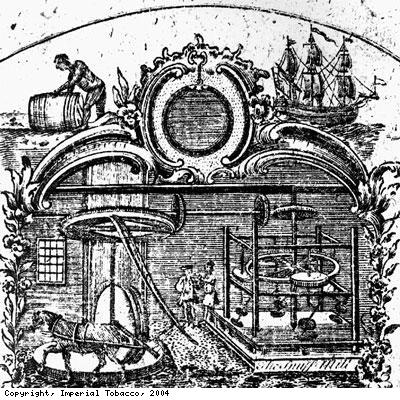
Description:
Picture: Snuff mill, from a wrapper for John Battin, London.
Reproduced with kind permission of Wills (now Imperial Tobacco).
Creator: John Battin
Date: unknown
Copyright: Copyright, Imperial Tobacco
Tobacco wrapper
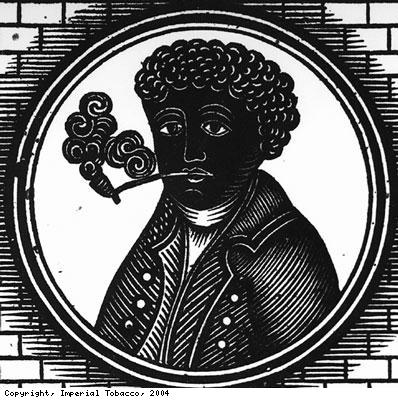
Description:
Picture: Tobacco wrapper. Tobacco packaging often used the image of the smartly dressed African, a long cry from the enslaved field worker.
Reproduced with kind permission of Wills (now Imperial Tobacco).
Date: unknown
Copyright: Copyright, Imperial Tobacco
Theobroma cacao tree
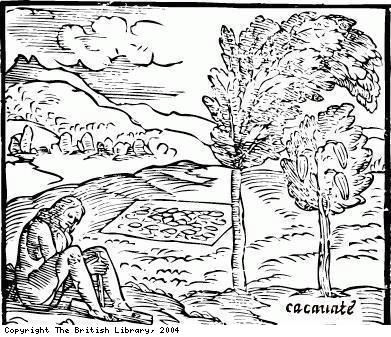
Description:
Picture: Theobroma cacao tree, from Historica by Bezoni .
By permission of the British Library
Creator: Bezoni
Date: 1572
Copyright: Copyright The British Library
Object ID:(BL Shelfmark: 278.a.39)
A Modern Midnight Conversation (detail)
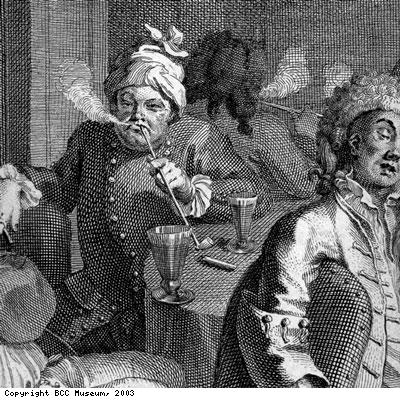
Description:
Picture: A Modern Midnight Conversation (detail) , by William Hogarth.
Creator: William Hogarth
Date: 1734
Copyright: Copyright BCC Museum
Grinding
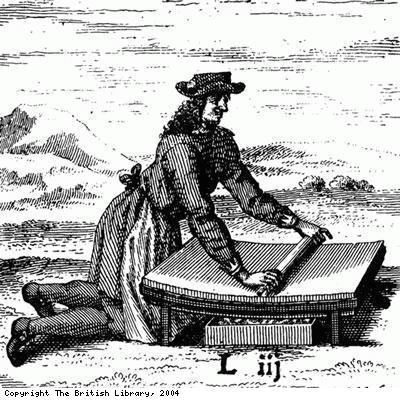
Description:
Picture: Grinding, from Le Bon Usage du The, du Caffe, et du Chocolat by de Blegny, 1687.
Cocoa, which was used to make chocolate, was grown on slave planations in the Caribbean and brought to Bristol for processing.
Chocolate was first used as a drink, sweetened with sugar to mask the bitter flavour of the chocolate. Later it was used for making eating chocolate. At this period, most people drank beer, wine or spirits. Water was not safe to drink, tea coffee and chocolate were expensive. Quakers promoted drinking chocolate as an alternative to alcohol.
By permission of the British Library
Creator: De Blegny
Date: 1687
Copyright: Copyright The British Library
Object ID:(BL Shelfmark: 450.b.26)
Cocoa powder wrapper
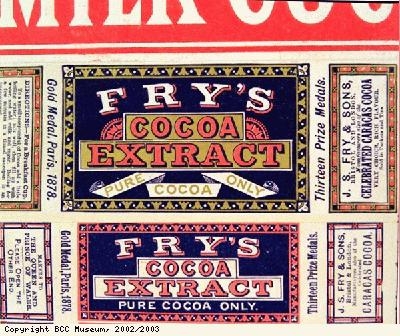
Description:
Cocoa powder wrapper, JS Fry and Sons.Cocoa beans were used in the chocolate making process.
Cocoa, which was used to make chocolate, was grown on slave planations in the Caribbean and brought to Bristol for processing.
Chocolate was first used as a drink, sweetened with sugar to mask the bitter flavour of the chocolate. Later it was used for making eating chocolate. At this period, most people drank beer, wine or spirits. Water was not safe to drink, tea coffee and chocolate were expensive. Quakers promoted drinking chocolate as an alternative to alcohol.
Creator: JS Fry and Sons
Date: unknown
Copyright: Copyright BCC Museum
Marriage a la Mode (detail)
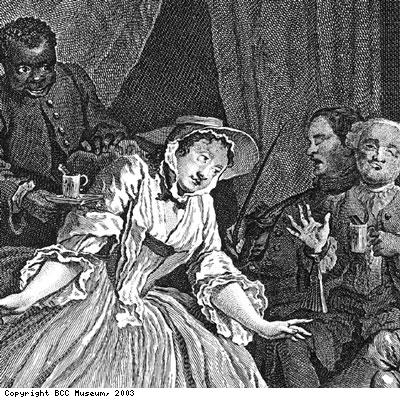
Description:
Picture: Marriage a la Mode (detail), by William Hogarth, drinking chocolate.
Cocoa, which was used to make chocolate, was grown on slave planations in the Caribbean and brought to Bristol for processing.
Chocolate was first used as a drink, sweetened with sugar to mask the bitter flavour of the chocolate. Later it was used for making eating chocolate. At this period, most people drank beer, wine or spirits. Water was not safe to drink, tea coffee and chocolate were expensive. Quakers promoted drinking chocolate as an alternative to alcohol.
Creator: William Hogarth
Date: 1745
Copyright: Copyright BCC Museum
Historic site, The Georgian House
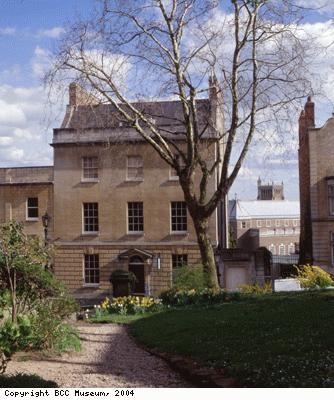
Description:
Historic site, the Georgian House, Great George St, Bristol. The house was built and owned by John Pinney (1740-1818). Pinney earned his fortune from his sugar plantations on the Caribbean island of Nevis from where he returned in 1783. He became even richer from the sugar company he set up with his friend, the pro-slavery campaigner James Tobin. Pinney and Tobin owned ships and loaned money to plantaion owners, and took over the plantations and slaves of those who could not pay their debts. Pinney and his black slave, Pero, are the subject of a small display in the house, which is now a museum and is furnished in typical Georgian style.
With thanks to the authors of the Slave Trade Trail around Central Bristol, Madge Dresser, Caletta Jordan, Doreen Taylor.
Date: 2003
Copyright: Copyright BCC Museum
Cape Coast Castle
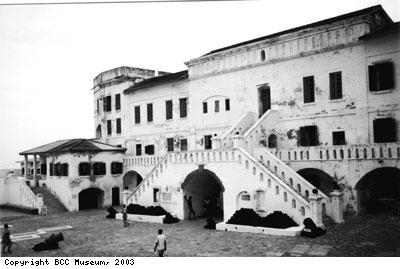
Description:
Photograph: Cape Coast Castle, Ghana.Taken by the British from the Swedes in 1662, this castle was adopted as headquarters for the slave trade on the Gold Coast.
With thanks to David Small and Christine Eickelmann for the use of this image.
Creator: David Small
Date: 1993
Copyright: David Small and Christine Eickelmann
Mountravers Plantation Great House site

Description:
Photograph: The Mountravers Plantation Great House site. Nevis, Caribbean.
With thanks to David Small and Christine Eickelmann for the use of this image.
Date: August 1998
Copyright: David Small and Christine Eickelmann
Page 289 of 352 pages « First < 287 288 289 290 291 > Last »

